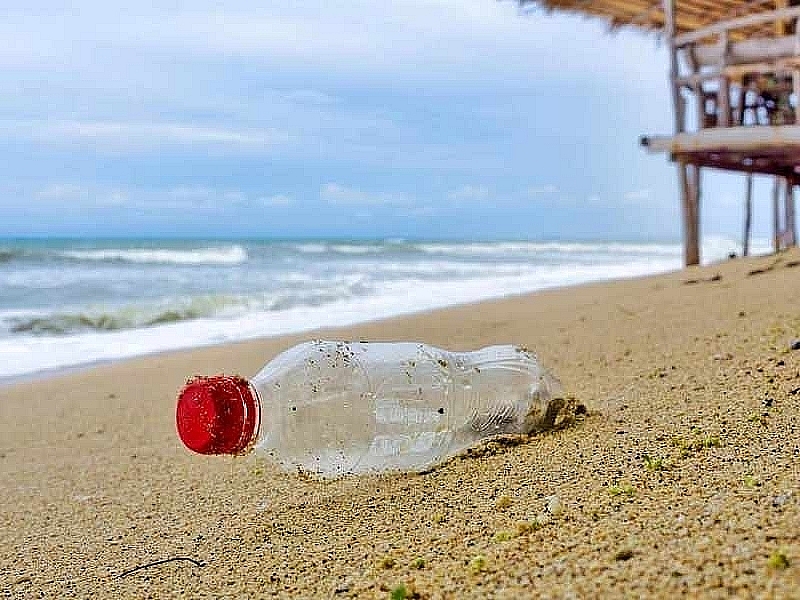Coca-Cola, PepsiCo, and P&G sued for contributing to plastic crisis
 |
| Coca-Cola, Pepsico, Procter & Gamble are among the largest polluter on the globe |
The Earth Island Institute filed the lawsuit on February 26, 2020 to the Superior Court of California, the first major lawsuit against giant food and beverage enterprises including Coca-Cola, PepsiCo, Danone, Mondelēz International, Colgate-Palmolive, and Procter & Gamble.
Defendants are major food, beverage, and consumer products businesses – some of them are in fact the world's largest – and are responsible for a substantial portion of the total plastic pollution currently present in California. Most of them also have factories in Vietnam.
The suit says that enterprises selling plastic bottles and bags that end up polluting the ocean should be held accountable for damaging the environment.
In its complaint, the institute cited estimations by scientists that between eight and 20 million tonnes of plastics enter the ocean annually. At this rate, plastic is set to outweigh fish in the ocean by 2050, posing a threat to the survival of marine species, many of which are critically endangered. Rather than switching to more sustainable materials in their products, the defendants are accused of having engaged in a decades-long campaign to deflect blame for the plastic pollution crisis to consumers.
The plaintiffs argue that the defendants’ campaigns spread the false narrative that the oceans, wildlife, and environment would be healthy were it not for the consumers who failed to recycle their plastic. However, in reality, much of the purportedly “recyclable” plastic sent to recycling facilities by consumers is not actually recyclable.
“Businesses involved in the production, distribution, and utilisation of plastic are at the heart of the pollution problem. Defendants use plastic to package and make their products instead of more sustainable alternatives in order to take advantage of the cheaper virgin plastic market and make higher profit,” noted in the suit.
Consumers are led to believe that the Earth would be healthy, if only they recycled properly, when in reality, there is no market for most plastics to be recycled, the suit said and added that customers have received misinformation downplaying the harms caused by plastic in marketing campaigns similar to the disinformation promoted by tobacco companies downplaying the dangers of smoking.
Less than 5 per cent of today's plastic gets recycled. “This is the first suit of its kind,” Phillips said. “These companies are going to have to reveal how much they’ve known about how little of this stuff is being recycled.”
In Vietnam, Coca-Cola, PepsiCo, Mondelēz International, Colgate-Palmolive, and Procter & Gamble are all prominent members of the food and beverage and consumer products scenes. When welcoming foreign investors, apart from economic benefits, no country wants them to make their living environment worse.
Coca-Cola and Pepsico were among the multinationals operating in Vietnam suspected of transfer pricing. Coca-Cola has three plants in Ho Chi Minh City, Danang, and Hanoi. Since entering the market in 1994, PepsiCo has undertaken an investment programme of more than $500 million and now has five beverage manufacturing plants in Vietnam, a high priority market in PepsiCo's aggressive emerging and developing markets growth plan.
Procter & Gamble, which has three factories in Vietnam, set the target the 100 per cent of its packaging would be recyclable or reusable by 2030.
Another key issue facing companies promising to dramatically increase their use of recycled resin is going to be the amount of such material on the market. With all of the promises being made, there are questions in the recycling industry about whether those demands can be satisfied.
What the stars mean:
★ Poor ★ ★ Promising ★★★ Good ★★★★ Very good ★★★★★ Exceptional
Related Contents
Latest News
More News
- Foreign leaders extend congratulations to Party General Secretary To Lam (January 25, 2026 | 10:01)
- 14th National Party Congress wraps up with success (January 25, 2026 | 09:49)
- Congratulations from VFF Central Committee's int’l partners to 14th National Party Congress (January 25, 2026 | 09:46)
- 14th Party Central Committee unanimously elects To Lam as General Secretary (January 23, 2026 | 16:22)
- Worldwide congratulations underscore confidence in Vietnam’s 14th Party Congress (January 23, 2026 | 09:02)
- Political parties, organisations, int’l friends send congratulations to 14th National Party Congress (January 22, 2026 | 09:33)
- Press release on second working day of 14th National Party Congress (January 22, 2026 | 09:19)
- 14th National Party Congress: Japanese media highlight Vietnam’s growth targets (January 21, 2026 | 09:46)
- 14th National Party Congress: Driving force for Vietnam to continue renewal, innovation, breakthroughs (January 21, 2026 | 09:42)
- Vietnam remains spiritual support for progressive forces: Colombian party leader (January 21, 2026 | 08:00)

 Tag:
Tag:




















 Mobile Version
Mobile Version